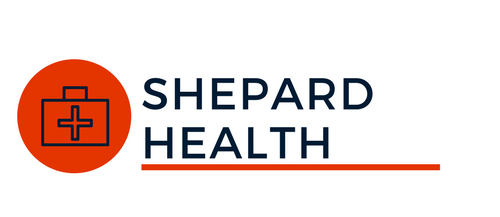9 Ways Machine Learning & AI Can Measure and Improve Outcomes for Addiction Medicine
Addiction medicine treatment extends far beyond simple sobriety. Measuring outcomes for those seeking meaningful recovery from addiction but may not seek abstinence, is a needed addition to scale and modernize addiction medicine treatment.
For example, instead of evaluating sobriety as a primary factor for measuring success for recovery outcomes, one can measure positive impacts socially, value added to family and society; or progress towards one's own goals.
Using latest in machine learning and AI, Shepard Health enable doctors to provide personalized care while they consider an array of factors that could determine what successful treatment looks like for each patient These technologies have the potential to revolutionize the way outcomes are measured for addiction medicine treatment by providing a more comprehensive understanding than simple sobriety alone.
Here are 9 ways AI and machine can be used to measure and improve outcomes for patients going through addiction and opioid treatment::
1. Risk Assessment: AI and machine learning algorithms can analyze patient data, such as demographics, medical history, substance abuse history, and mental health status, to identify patients at high risk of developing addiction or relapsing after treatment. By identifying high-risk patients, clinicians can provide more intensive treatment and monitoring to prevent relapse.
2. Treatment Optimization: AI and machine learning algorithms can analyze patient data to identify the most effective treatments for individual patients based on their unique characteristics. This can help clinicians personalize treatment plans and improve treatment outcomes.
3. Predicting Treatment Success: AI and machine learning algorithms can predict the likelihood of treatment success based on patient characteristics and treatment history. This can help clinicians identify patients who may need additional support or a different treatment approach to achieve success.
4. Early Intervention: AI and machine learning algorithms can analyze patient data to identify early warning signs of relapse or treatment failure. This can help clinicians intervene early and prevent relapse or treatment failure before it becomes a more serious problem.
5. Measuring Treatment Efficacy: Machine learning algorithms can be used to analyze patient data and determine which treatment approaches are most effective for different types of addiction. This can help clinicians tailor treatment plans to individual patients and improve overall treatment efficacy.
6. Predicting Relapse: Machine learning algorithms can be used to predict which patients are at higher risk of relapse based on their past behavior and other factors. This information can be used to intervene early and prevent relapse.
7. Identifying Co-Occurring Conditions: Machine learning algorithms can be used to identify patients with co-occurring mental health conditions, such as depression or anxiety, which can impact addiction treatment outcomes. This can help clinicians tailor treatment plans to address both the addiction and the underlying mental health condition.
8. Tracking Progress Over Time: Machine learning algorithms can be used to track patient progress over time and identify trends or patterns in behavior that may indicate a need for intervention or a change in treatment approach.
9. Identifying New Treatment Opportunities: Machine learning algorithms can be used to identify novel treatment approaches or medication combinations that may be effective for certain types of addiction or patients with specific characteristics.
Data science and emerging technologies can help improve addiction and opioid treatment outcomes by providing clinicians with valuable insights into patient risk, treatment effectiveness, and early warning signs of relapse or treatment failure.

